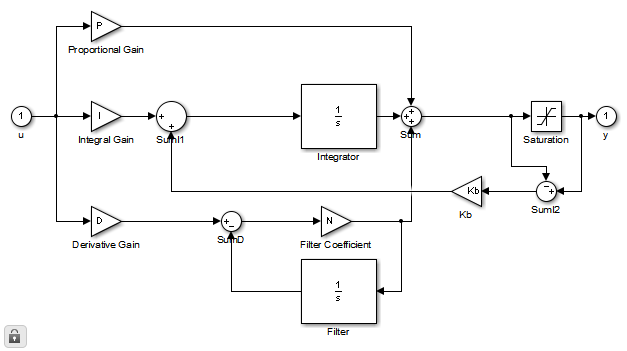I am trying to implement my own (simplified) PI block for digital controller and would like to include anti-windup function. A basic structure for PID controller with back calculation is given below:
Theory says: Integrator windup can be avoided, by making sure that the integral is kept to a proper value when the actuator saturates, so that the controller is ready to resume action, as soon as the control error changes.
This reference compares anti-windup methods.
But I couldn't find any test cases for testing anti-windup. Are there any test case to test anti-windup and tune its performance? How to force integrator into saturation (in Simulink) and test the behavior when going out of saturation?

